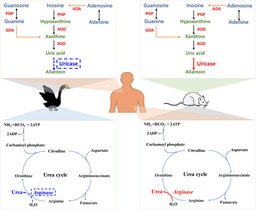SPECTRUM OF BRAF MUTATIONS IN PAKISTANI COHORT
Published in Cancer and Biomedical Research
Colorectal cancer remains a major cause of cancer-related morbidity and mortality worldwide, yet genomic profiling and personalized oncology are far from being a clinical reality in many underdeveloped countries. Our motivation stemmed from a deep concern over this disparity. Despite a growing burden of colorectal cancer in our region, there was a notable absence of local molecular data, particularly regarding actionable mutations such as KRAS and BRAF, which guide prognosis and therapy.
We aimed to generate baseline genomic data regarding BRAF mutations for our local population and identify associated molecular events. Genetic testing services in our country are accessible only to a privileged few, and targeted therapy options are virtually non-existent in public-sector hospitals. This reality adds urgency to our efforts, as the lack of infrastructure perpetuates a cycle of late diagnosis, suboptimal treatment, and poor outcomes.
We hope our work not only contributes to colorectal cancer research but also highlights the need for greater investment in molecular oncology infrastructure in under-resourced settings.
Follow the Topic
-
BMC Cancer

This is an open access, peer-reviewed journal that considers articles on all aspects of cancer research, including the pathophysiology, prevention, diagnosis and treatment of cancers.
Related Collections
With Collections, you can get published faster and increase your visibility.
Genitourinary cancers: advances in research, diagnosis, and treatment
Genitourinary cancers, spanning a wide range of malignancies affecting both the urinary and reproductive systems, represent a significant global health challenge. These malignancies affect millions of individuals worldwide and are associated with substantial morbidity and mortality. Recent advancements in understanding the molecular and genetic underpinnings of these cancers have paved the way for innovative diagnostic and therapeutic approaches. As researchers continue to explore the complexities of genitourinary tumors, a clearer picture of their pathophysiology is emerging, which is crucial for developing targeted treatment strategies.
The ongoing research in genitourinary cancers is pivotal for improving patient outcomes. With the advent of precision medicine, immunotherapy, and novel biomarker identification, there have been significant strides in tailoring treatments to individual patients. For instance, the incorporation of genomic profiling in clinical practice has revolutionized our approach to managing prostate cancer, enabling more effective and personalized therapies. Furthermore, ongoing clinical trials are continually expanding our knowledge base, ultimately aiming to enhance survival rates and quality of life for patients diagnosed with these cancers.
Continued research in this field holds the promise of further breakthroughs in diagnostics and treatment modalities. As our understanding of the molecular drivers of genitourinary cancers deepens, we may witness the development of innovative therapeutic agents, enhanced screening methods, and more effective strategies for early detection. Future research could also lead to better integration of multidisciplinary approaches, offering hope for improved management and outcomes for patients facing these challenging diseases.
This Collection welcomes research articles on topics including, but not limited to:
- Genetic mutations and molecular pathways in genitourinary cancers
- Advances in biomarker discovery for early detection
- Imaging technology for early detection
- Liquid biopsy
-Genomic testing for personalized treatment plans
- Immuno-oncology combinations and novel drug classes
- Role of surgery and minimally invasive procedures
- Targeted therapies for specific genitourinary malignancies
- Overcoming resistance to chemotherapy and targeted therapies
- New clinical trials and cutting-edge research
- Translational research bridging laboratory findings to clinical applications
All manuscripts submitted to this journal, including those submitted to collections and special issues, are assessed in line with our editorial policies and the journal’s peer-review process. Reviewers and editors are required to declare competing interests and can be excluded from the peer review process if a competing interest exists.
Publishing Model: Open Access
Deadline: May 15, 2026
Cancer evolution: from premalignancy to tumor progression
The significance of this research lies in its potential to revolutionize cancer prevention and treatment. As we better understand the early stages of cancer development, we can implement more effective screening strategies and interventions aimed at halting progression before malignancy occurs. Advances in precision medicine have already paved the way for personalized therapies that target specific mutations. Continued exploration into the molecular and cellular foundations of cancer evolution is crucial for enhancing our ability to manage and treat this complex disease.
If this research trajectory continues, we can anticipate significant advancements in the field of oncology. Future studies may lead to the identification of novel biomarkers that predict cancer progression, as well as the development of targeted therapies aimed at early-stage cancers. The integration of artificial intelligence and machine learning in cancer research could further accelerate our understanding of tumor evolution and foster the creation of innovative treatment strategies that are tailored to individual patients.
Topics welcome to this Collection include, but are not limited to, the following:
- Mechanisms of tumor heterogeneity
- Computational modeling of cancer evolution
- Cancer ecology
- Biomarkers for early cancer detection
- The role of the tumor microenvironment
- Epigenetic and genetic alterations in cancer progression
- Precision medicine approaches in oncology
All manuscripts submitted to this journal, including those submitted to collections and special issues, are assessed in line with our editorial policies and the journal’s peer-review process. Reviewers and editors are required to declare competing interests and can be excluded from the peer review process if a competing interest exists.
Publishing Model: Open Access
Deadline: Feb 27, 2026





Please sign in or register for FREE
If you are a registered user on Research Communities by Springer Nature, please sign in